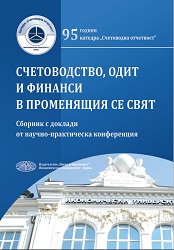
Разпознаваемост на френски и италиански вина в България: уроци за местни винени клъстери
In our study we explore how distinctive are French and Italian wines for Bulgarian residents. Our aim is to draw some lessons from the perceptions about foreign wines for the building of local wine clusters. We use an online survey, searching how recognizable are French and Italian wines for Bulgarian residents. We apply our research instrument twice - in May and in December 2018, with respondents aged 19-66, with questions about identification of wines and about pricing. Bulgarian residents distinguish fairly well French and Italian wines, yet the process depends on the availability of vine sorts in Bulgaria, as a base for Bulgarian wines. Perceptions of prices widely differ from the reality in Bulgarian retail, and we consider this gap as a potential to exploit in the creation of wine clusters. From the point of view of cluster’s fundament, clusters in the wine sector should be based primarily on the national or regional cultural identity and therefore transformed over wine sector identity.
More...






